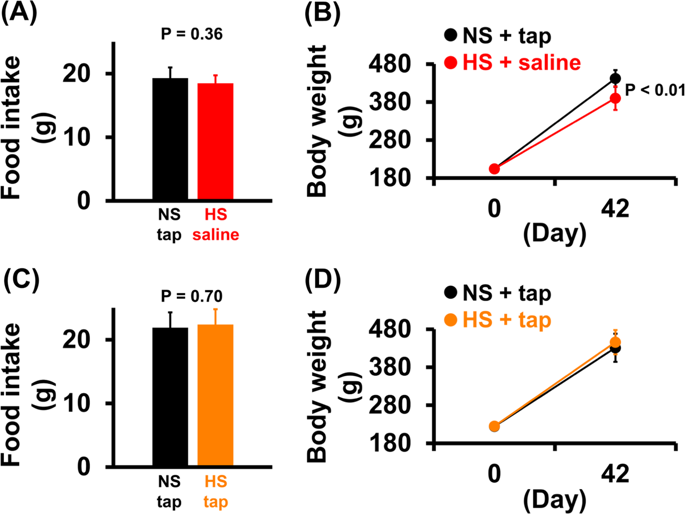当前位置:
X-MOL 学术
›
Hypertens. Res.
›
论文详情
Our official English website, www.x-mol.net, welcomes your
feedback! (Note: you will need to create a separate account there.)
Renal sympathetic nerve activity regulates cardiovascular energy expenditure in rats fed high salt
Hypertension Research ( IF 4.3 ) Pub Date : 2020-01-14 , DOI: 10.1038/s41440-019-0389-1 Norihiko Morisawa 1, 2 , Kento Kitada 1, 3 , Yoshihide Fujisawa 4 , Daisuke Nakano 1 , Daisuke Yamazaki 1, 5 , Shuhei Kobuchi 6 , Lei Li 1 , Yifan Zhang 1 , Takashi Morikawa 5 , Yoshio Konishi 5 , Takashi Yokoo 2 , Friedrich C Luft 7 , Jens Titze 3, 8, 9 , Akira Nishiyama 1
Hypertension Research ( IF 4.3 ) Pub Date : 2020-01-14 , DOI: 10.1038/s41440-019-0389-1 Norihiko Morisawa 1, 2 , Kento Kitada 1, 3 , Yoshihide Fujisawa 4 , Daisuke Nakano 1 , Daisuke Yamazaki 1, 5 , Shuhei Kobuchi 6 , Lei Li 1 , Yifan Zhang 1 , Takashi Morikawa 5 , Yoshio Konishi 5 , Takashi Yokoo 2 , Friedrich C Luft 7 , Jens Titze 3, 8, 9 , Akira Nishiyama 1
Affiliation

|
We recently reported that a 4% high-salt diet + saline for drinking (HS + saline) leads to a catabolic state, reduced heart rate, and suppression of cardiovascular energy expenditure in mice. We suggested that HS + saline reduces heart rate via the suppression of the sympathetic nervous system to compensate for the high salt intake-induced catabolic state. To test this hypothesis, we directly measured renal sympathetic nerve activity (RSNA) in conscious Sprague-Dawley (SD) rats using a radiotelemetry system. We confirmed that HS + saline induced a catabolic state. HS + saline decreased heart rate, while also reducing RSNA in SD rats. In contrast, Dahl salt-sensitive (DSS) rats exhibited no change in heart rate and increased RSNA during high salt intake. Renal denervation significantly decreased heart rate and attenuated the catabolic state independent of blood pressure in DSS rats fed HS + saline, suggesting that salt-sensitive animals were unable to decrease cardiovascular energy consumption due to abnormal renal sympathetic nerve activation during high salt intake. These findings support the hypothesis that RSNA mediates heart rate during high salt intake in SD rats. However, the insensitivity of heart rate and enhanced RSNA observed in DSS rats may be additional critical diagnostic factors for salt-sensitive hypertension. Renal denervation may benefit salt-sensitive hypertension by reducing its effects on catabolism and cardiovascular energy expenditure.
中文翻译:

肾交感神经活动调节高盐喂养大鼠的心血管能量消耗
我们最近报道了 4% 高盐饮食 + 饮用盐水(HS + 盐水)导致小鼠分解代谢状态、心率降低和心血管能量消耗的抑制。我们建议 HS + 盐水通过抑制交感神经系统来降低心率,以补偿高盐摄入引起的分解代谢状态。为了验证这一假设,我们使用无线电遥测系统直接测量了清醒 Sprague-Dawley (SD) 大鼠的肾交感神经活动 (RSNA)。我们证实 HS + 盐水诱导了分解代谢状态。HS + 生理盐水降低了心率,同时也降低了 SD 大鼠的 RSNA。相比之下,Dahl 盐敏感 (DSS) 大鼠在高盐摄入期间没有表现出心率变化和 RSNA 增加。在喂食 HS + 盐水的 DSS 大鼠中,肾去神经支配显着降低心率并减弱分解代谢状态,这与血压无关,这表明盐敏感动物由于在高盐摄入期间肾交感神经激活异常而无法降低心血管能量消耗。这些发现支持 RSNA 在 SD 大鼠高盐摄入期间介导心率的假设。然而,在 DSS 大鼠中观察到的心率不敏感和 RSNA 增强可能是盐敏感性高血压的额外关键诊断因素。肾去神经支配可能通过减少其对分解代谢和心血管能量消耗的影响而有益于盐敏感性高血压。表明盐敏感动物在高盐摄入期间由于肾交感神经异常激活而无法降低心血管能量消耗。这些发现支持 RSNA 在 SD 大鼠高盐摄入期间介导心率的假设。然而,在 DSS 大鼠中观察到的心率不敏感和 RSNA 增强可能是盐敏感性高血压的额外关键诊断因素。肾去神经支配可能通过减少其对分解代谢和心血管能量消耗的影响而有益于盐敏感性高血压。表明盐敏感动物在高盐摄入期间由于肾交感神经异常激活而无法降低心血管能量消耗。这些发现支持 RSNA 在 SD 大鼠高盐摄入期间介导心率的假设。然而,在 DSS 大鼠中观察到的心率不敏感和 RSNA 增强可能是盐敏感性高血压的额外关键诊断因素。肾去神经支配可能通过减少其对分解代谢和心血管能量消耗的影响而有益于盐敏感性高血压。在 DSS 大鼠中观察到的心率不敏感和 RSNA 增强可能是盐敏感性高血压的额外关键诊断因素。肾去神经支配可能通过减少其对分解代谢和心血管能量消耗的影响而有益于盐敏感性高血压。在 DSS 大鼠中观察到的心率不敏感和 RSNA 增强可能是盐敏感性高血压的额外关键诊断因素。肾去神经支配可能通过减少其对分解代谢和心血管能量消耗的影响而有益于盐敏感性高血压。
更新日期:2020-01-14
中文翻译:

肾交感神经活动调节高盐喂养大鼠的心血管能量消耗
我们最近报道了 4% 高盐饮食 + 饮用盐水(HS + 盐水)导致小鼠分解代谢状态、心率降低和心血管能量消耗的抑制。我们建议 HS + 盐水通过抑制交感神经系统来降低心率,以补偿高盐摄入引起的分解代谢状态。为了验证这一假设,我们使用无线电遥测系统直接测量了清醒 Sprague-Dawley (SD) 大鼠的肾交感神经活动 (RSNA)。我们证实 HS + 盐水诱导了分解代谢状态。HS + 生理盐水降低了心率,同时也降低了 SD 大鼠的 RSNA。相比之下,Dahl 盐敏感 (DSS) 大鼠在高盐摄入期间没有表现出心率变化和 RSNA 增加。在喂食 HS + 盐水的 DSS 大鼠中,肾去神经支配显着降低心率并减弱分解代谢状态,这与血压无关,这表明盐敏感动物由于在高盐摄入期间肾交感神经激活异常而无法降低心血管能量消耗。这些发现支持 RSNA 在 SD 大鼠高盐摄入期间介导心率的假设。然而,在 DSS 大鼠中观察到的心率不敏感和 RSNA 增强可能是盐敏感性高血压的额外关键诊断因素。肾去神经支配可能通过减少其对分解代谢和心血管能量消耗的影响而有益于盐敏感性高血压。表明盐敏感动物在高盐摄入期间由于肾交感神经异常激活而无法降低心血管能量消耗。这些发现支持 RSNA 在 SD 大鼠高盐摄入期间介导心率的假设。然而,在 DSS 大鼠中观察到的心率不敏感和 RSNA 增强可能是盐敏感性高血压的额外关键诊断因素。肾去神经支配可能通过减少其对分解代谢和心血管能量消耗的影响而有益于盐敏感性高血压。表明盐敏感动物在高盐摄入期间由于肾交感神经异常激活而无法降低心血管能量消耗。这些发现支持 RSNA 在 SD 大鼠高盐摄入期间介导心率的假设。然而,在 DSS 大鼠中观察到的心率不敏感和 RSNA 增强可能是盐敏感性高血压的额外关键诊断因素。肾去神经支配可能通过减少其对分解代谢和心血管能量消耗的影响而有益于盐敏感性高血压。在 DSS 大鼠中观察到的心率不敏感和 RSNA 增强可能是盐敏感性高血压的额外关键诊断因素。肾去神经支配可能通过减少其对分解代谢和心血管能量消耗的影响而有益于盐敏感性高血压。在 DSS 大鼠中观察到的心率不敏感和 RSNA 增强可能是盐敏感性高血压的额外关键诊断因素。肾去神经支配可能通过减少其对分解代谢和心血管能量消耗的影响而有益于盐敏感性高血压。











































 京公网安备 11010802027423号
京公网安备 11010802027423号